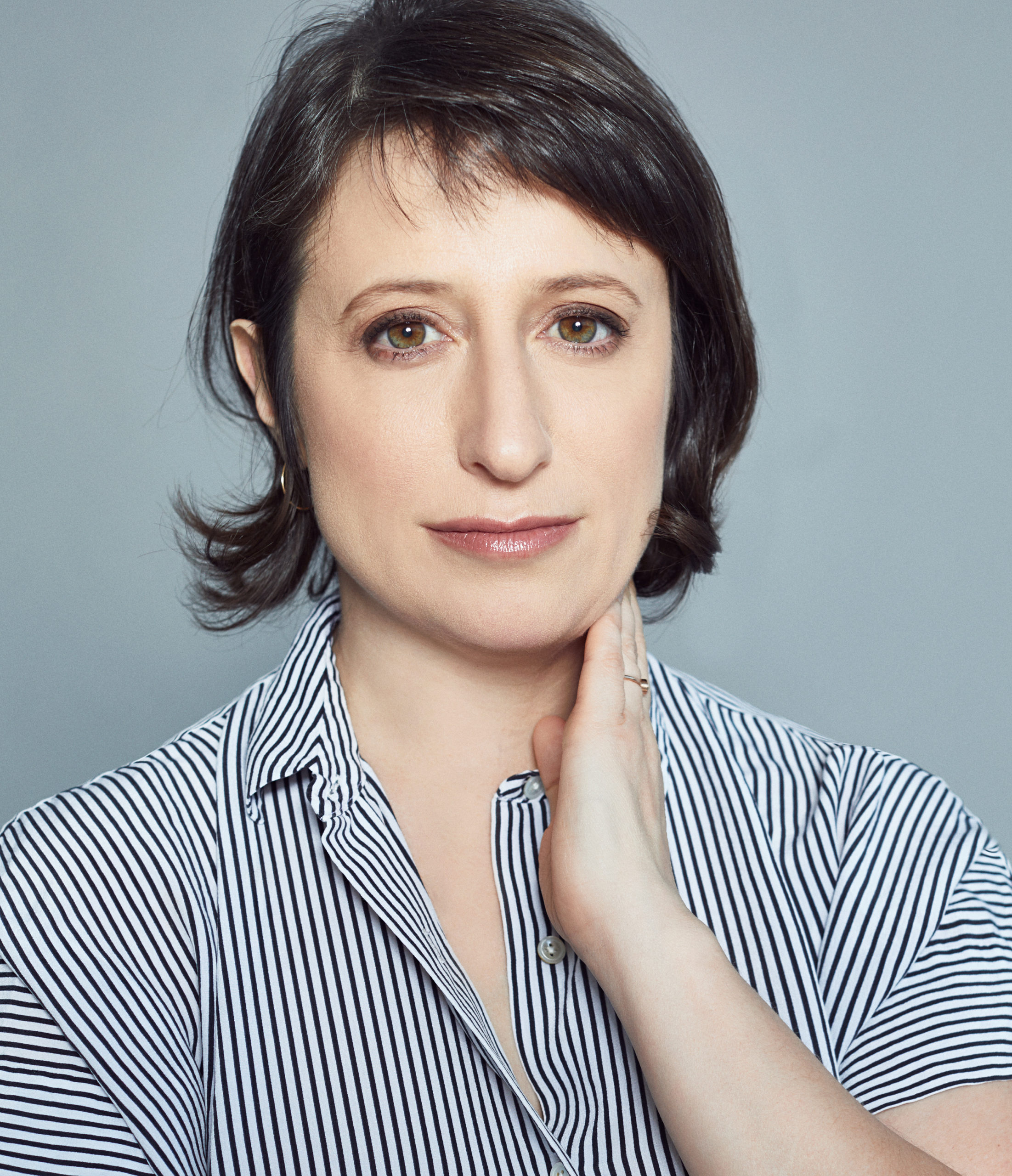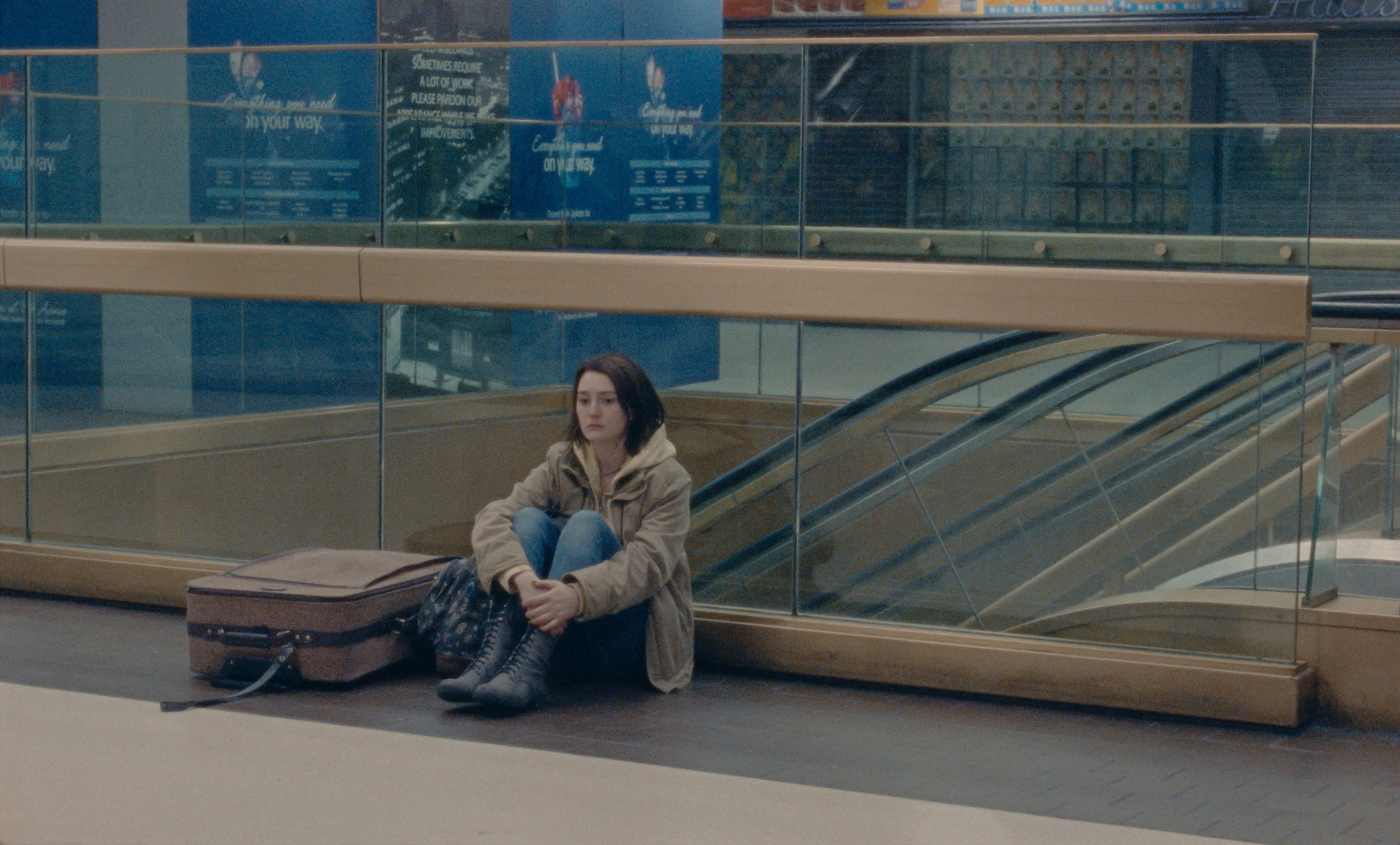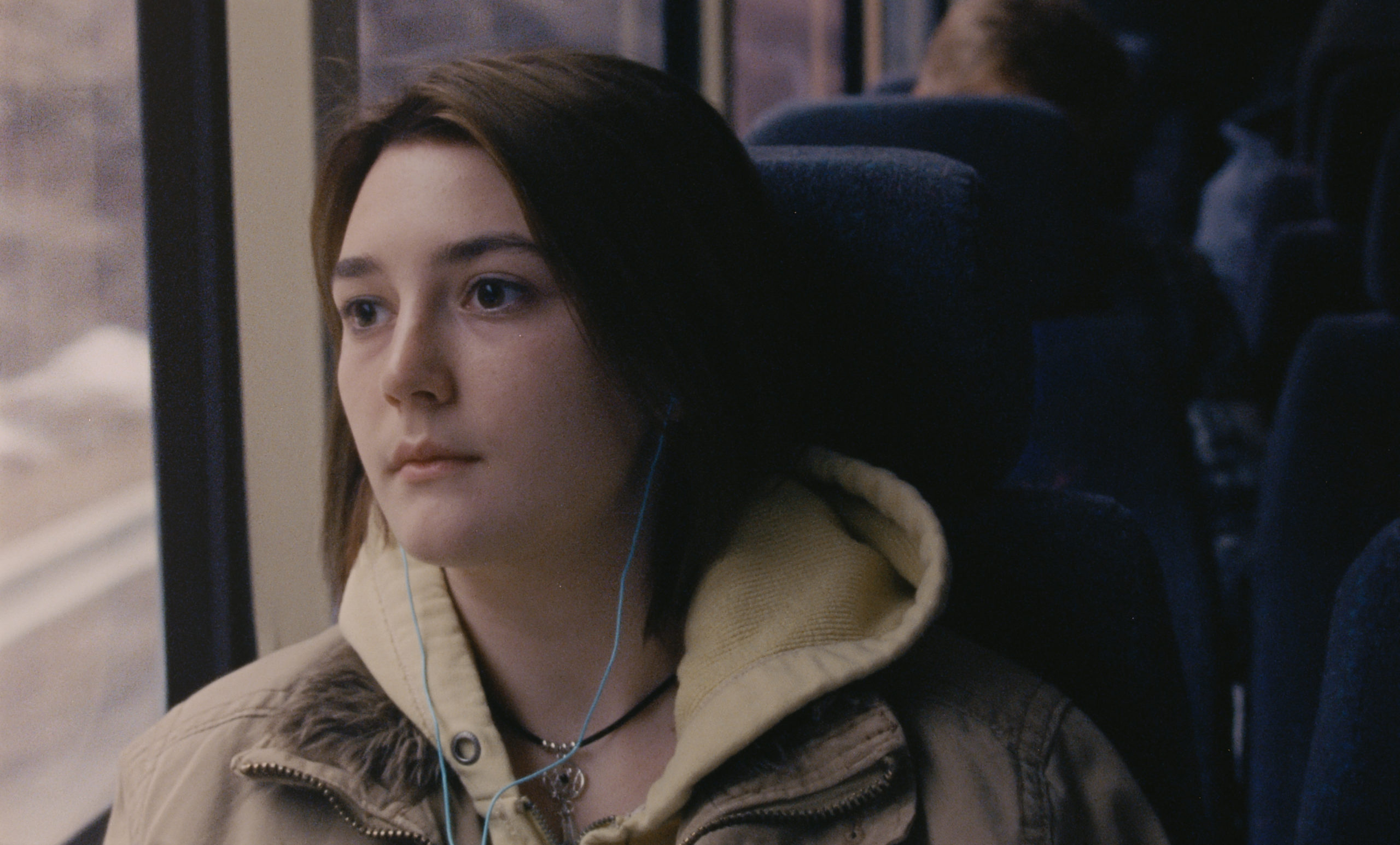For a movie about abortion, the word itself is only uttered once in Never Rarely Sometimes Always: right before 17-year-old Autumn, who has travelled from her rural hometown in Pennsylvania to Brooklyn in order to get the procedure, is put under. It makes sense; the movie’s profundity lies in all the things that are too difficult to speak — and the arresting emotions we’re left with instead.
Eliza Hittman’s third feature film, Never Rarely Sometimes Always, is something you might call a difficult watch, though as I told her over the phone when we spoke earlier this week, I was grateful for the 100 minutes spent feeling a different kind of pain than the one that this current pandemic has brought on. And beyond the pain is a powerful, moving, and important story of young womanhood, friendship, and coming of age in a time when so many of our reproductive rights are on the line.
The film tells the story of Autumn, a high school student who works at a grocery store with her cousin Skylar who’s around the same age. After visiting a local clinic to “take a test,” we learn that Autumn is pregnant (though that word itself is never mentioned, as though she can’t bring herself to say it). What follows is her harrowing journey to end the pregnancy, starting with some dangerous at-home attempts and eventually sending Autumn and Skylar on a bus to New York City where can safely get an abortion without her parent’s consent.
Hittman, whose previous films also focus on the darker end of the teenage spectrum, is known for her untraditional casting: In Beach Rats, her 2015 film about a teenage boy growing up near Coney Island who grapples with his sexuality, the protagonist’s friends were played by real Brooklyn kids who she found playing in different handball courts across Brooklyn. In Never Rarely, Autumn is played by newcomer Sidney Flanigan, who Hittman randomly met at a backyard wedding in Buffalo, New York several years ago. Flanigan is a musician, not a trained actor, and after watching videos of Flanigan perform music, Hittman was taken with her angsty teenage spirit. As she told me, this type of casting lends an “emotionally authentic” air to the film, which any viewer can confirm.
Due to the spread of COVID-19, Never Rarely was not able to be released in theaters, instead going straight to Video On Demand. Hittman, a Brooklyn native from a Jewish family, is balancing doing (virtual) press for the film while teaching film full-time at the Pratt Institute and dealing with her 5-year-old who’s currently “bouncing off the walls” of their home. I was grateful to chat with Hittman about why she’s so drawn to coming of age stories, how you prepare a non-actor for an incredibly intense performance, and of course, how her family’s Zoom seder went this year.
This interview has been edited and condensed for clarity.
What is it about the teenage experience that draws you to focus your art around it?
It’s the very vulnerable, formative moments that I’m exploring in these young people’s lives. I think often times, coming of age films show coming of age as a transformative experience. And for me, I think of it a little bit more as a process of disillusionment, where you’re wrestling with who you are and what obstacles you’re up against. And there’s a sadness in sort of coming to terms with the world.

There’s this incredibly pivotal scene in the movie when Autumn is being interviewed by an abortion counselor. She’s being asked questions about whether anyone has abused her or forced her into sex. It’s incredibly painful and tragic and intense. How did you prepare for that scene? How did you prepare the actress, Sidney, for that scene?
It’s the scene that I workshopped the most. I consulted with a real counselor who trained at Planned Parenthood but then ended up working at a private clinic called Choices. When I met Kelly Chapman [the real abortion counselor who plays the abortion counselor in the film], I was really taken with her honesty about the work that she does. I started calling her whenever I had questions while writing the script or when I hit a roadblock, and her voice ended up very much being the voice of the counselor in the script. When we were casting the movie, I had a hard time imagining anyone else doing it but the real counselor that I had been talking to.
So, Sidney was in incredible hands for this scene. Sidney, as a first time actor, is very vulnerable and drawing from some vulnerable personal experiences and acting as the character. Kelly is drawing from her professional, personal experiences and acting. And I think that’s really what makes the scene so special.
To prepare for the shoot on the day of, I quarantined Sidney on set in a private office. We shot at the Margaret Sanger Planned Parenthood [in Manhattan]. And sometimes, when you shoot an independent film, the environment is very chaotic. There are no trailers for actors to get into character or get ready. No private space. So that day I really insisted she had a room to sit in quietly before shooting.
The one piece of direction that I gave her that I think really helped — because she knew we were doing it as a long take — is a lot of the early intake questions in the scene, I told her not to worry about the answers on the page. And I told her just to answer from a personal place. So when they’re asking questions about family history — “Anyone have heart disease?” “No, no, not that I know of,” — she’s really thinking about and going through her history and the character’s history.
It felt so incredibly real and authentic, and I wanted to ask, as you have a knack for casting “real people” or non-actors in your movie, what do you find is the biggest benefit of that?
There’s always actually a mix in my films of first-timers and real people and actors. And I can never predict what will end up in what role. It really is about, ultimately, who feels most authentic to me, and who I think will bring the most depth to the character. So for Beach Rats, we cast a lot of kids out of parks or handball courts. And I don’t think in a million years my producers or the casting director thought I would cast a British kid from London [Harris Dickinson] in the lead. I’m known for throwing a few curveballs. It’s always a mix, and it’s about who feels authentic to me — emotionally authentic.
Have you gotten any anti-choice backlash because of this film?
We haven’t yet, really. Obviously there’s a really hostile National Review article, and there’s some stuff that we found on message boards like 4chan where people are conspiring to give the film shitty ratings on Rotten Tomatoes and IMDB. But because we’re not screening theatrically anymore — we pivoted from our theatrical release to VOD — I have less contact with the audience than I would have had if I had done a regional press tour.
Right, I wanted to ask how the pandemic has affected the release and reception of the film.
I mean, you know, we’re living through an open-ended nightmare. I feel like the film has this sort of intersectional relevance at the moment with the pandemic because there are so many states that are trying to deem reproductive care non-essential. So, my hope is that this film reaches a vulnerable audience.
Who’s your ideal viewer?
My hope is that young women, like the age of the character, have access to seeing the film. And also conservative men.

Can you tell me a bit about your Jewish background and upbringing?
My family is all Ashkenazi. My great-grandparents came over from Eastern Europe, and my grandparents are first-generation Lower East Side Jews. So, I was raised kind of culturally Jewish, obviously, and observing High Holy days, and going to temple for the holidays as a child. And then at a certain point, we stopped going. I didn’t have a bat mitzvah and I never attended Hebrew school. So, you know, it’s rich in a sense of my family history, I would say, but I’m not the most practicing or observant.
Did you and your family do any virtual seders this Passover?
We did do a virtual seder.
How did it go?
It went well. My mom lives 10 blocks away and she made a huge feast. And she left us a to-go bag on our porch. So we did celebrate, and talked all about the many plagues that we’re living through at this moment.
Do you feel that your Jewish identity or upbringing has affected your work as a filmmaker?
In Never Rarely and in Beach Rats, there are some undertones of the influence that religion has on our identity. In Beach Rats, it’s subtly clear that he comes from a Catholic family, it’s a Catholic funeral service for his father, and I think we can infer the expectations that that upbringing had on his sexual identity. And obviously in Never Rarely, the protagonist first goes to a pregnancy care center that she discovers is based on a certain belief system. So I do think that there are religious undertones to those two films.
I haven’t made anything yet that explores the impact of Judaism, but it’s not something that is off the table in any way. I think that I always consciously try to distance things a little bit from my own family and upbringing. But it’s something that I am interested in exploring.
Film stills courtesy of Focus Features. Hittman headshot by Victoria Stevens.



